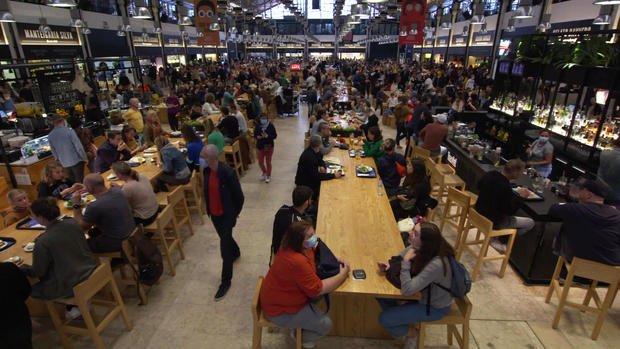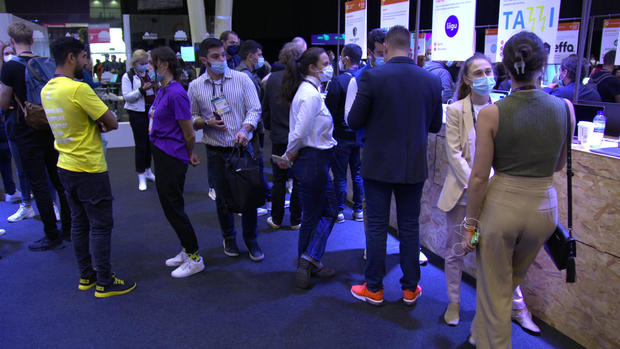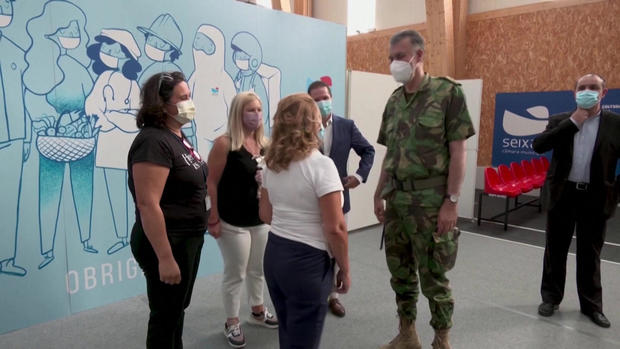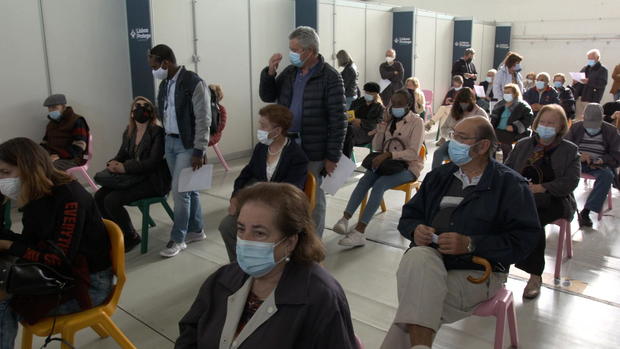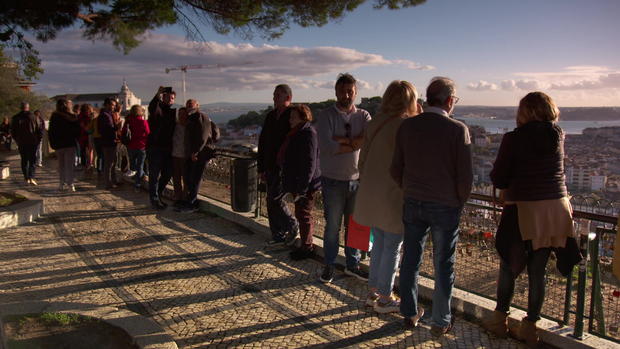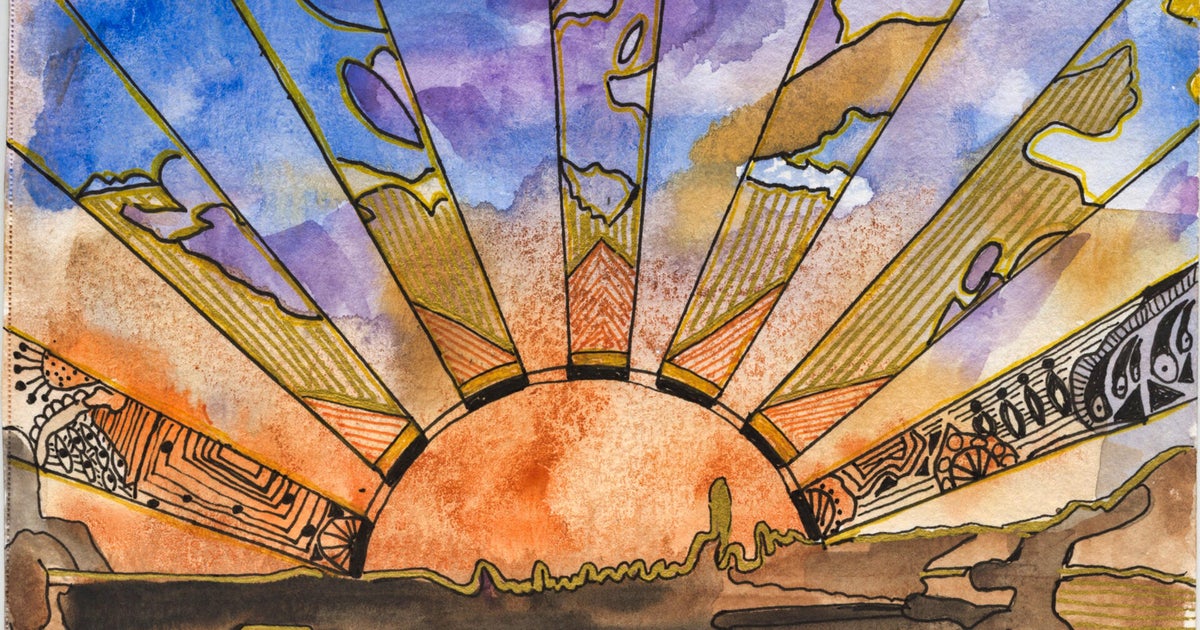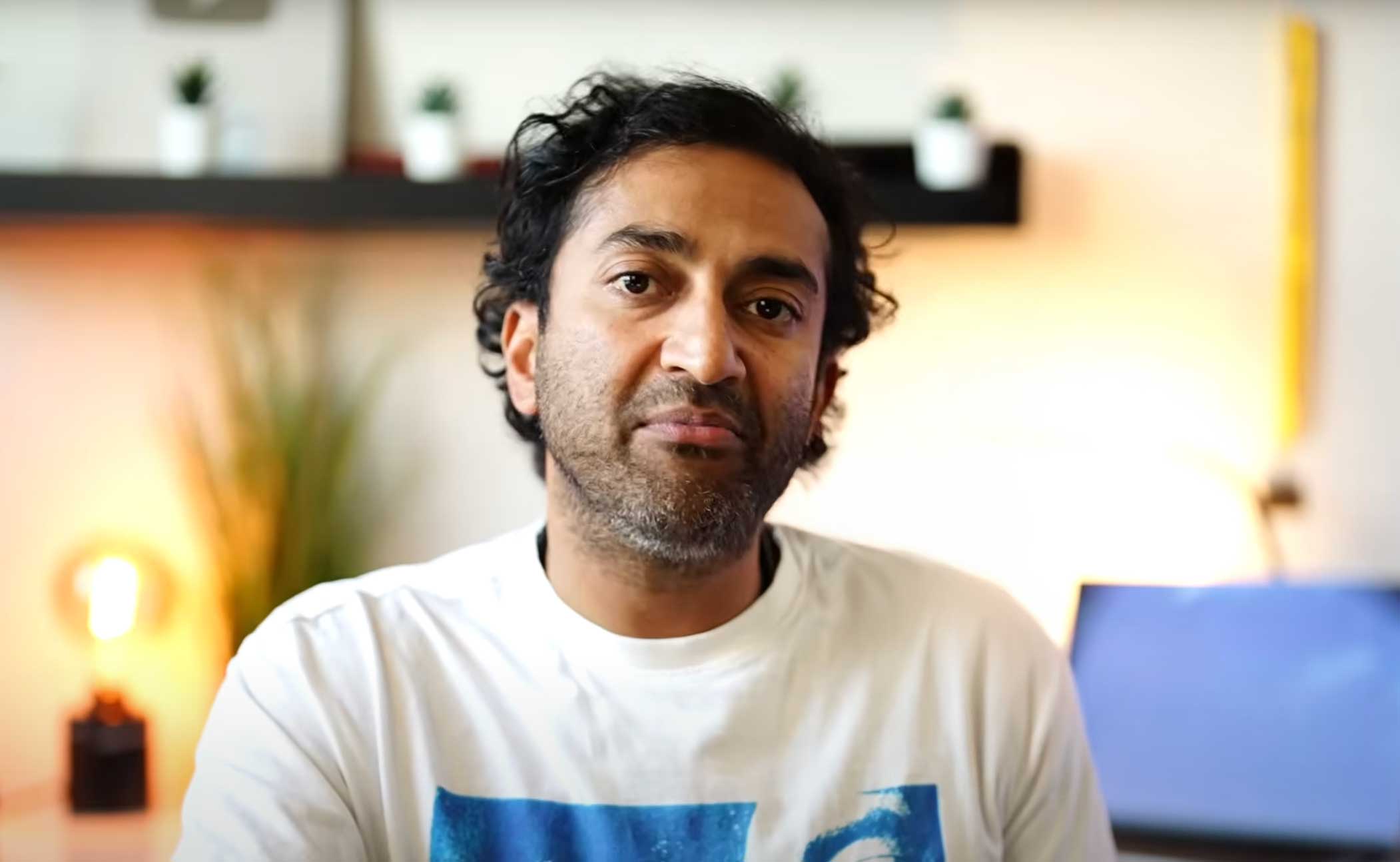Portugal, the little country that could ... get vaccinated
From an overlook in Lisbon, with the sun peeking through, things look pretty good. Having weathered the storm of COVID, at least for now, Portugal is emerging as a shining example: one of the most vaccinated countries on Earth, with roughly 98 percent of those eligible here having been vaccinated, compared to about 62% in the U.S.
Trams are again packed; so are restaurants.
Organizers of Lisbon's Web Summit tech conference saw companies shift their stance on attendance. "Amazon told us in September, early September, 'Right, we're in,' and that was followed by Facebook, Google, Apple and Microsoft," said Web Summit CEO Paddy Cosgrave.
Correspondent Seth Doane asked, "Were you watching the vaccination rates here in Portugal, while you were planning?"
"Yeah, yeah. Massively, yeah," Cosgrave replied.
He said Portugal's vaccination rate was the "single biggest consideration," as they worked with authorities to increase the number of attendees to about 40,000.
"The vaccination program was led by the military," Cosgrave said. "A top Navy official spoke at Web Summit in all of his gear, and it worked, whatever he did. I think it had a profound effect, dispelling concerns that certain parts of the population might have about getting vaccinated."
A former submarine commander, Vice-Admiral Henrique Gouveia e Melo was put in charge of Portugal's vaccination effort in February, as the country struggled with a deadly third wave.
"I appeared on the public always in my combat suit," he said.
"Why did you wear your combat suit?" Doane asked.
"Because it was a war phase," he replied.
He saw it as "war" with no neutral parties: "So, there is only two sides. Are you on the side of the virus, helping the virus, because you don't want to be vaccinated? Or are you on the side of the community, of everybody?"
Portugal is roughly tied with the United Arab Emirates for fully-vaccinated citizens: more than 87% of the entire population. The admiral says Portugal's success was due to organization, communication, leadership, and another factor: "Because I'm not a politician, and I make the process outside the [political] struggles," he said.
"You think that was important, to de-politicize this?" asked Doane.
"Yes. Clear, that was very important."
Guilherme Romana runs a vaccination center which was busy with those getting COVID boosters and regular flu shots. "People here are very keen to get the vaccine," he said.
Romana said Portugal's state healthcare system has had a robust vaccination program since its battle against polio in the 1960s: "People are used to get vaccine, their children to get vaccine, their grandchildren to get vaccines. So, it's a normal health procedure."
But across Europe, COVID hotspots are re-emerging. Infections and deaths are spiking in Bulgaria, where only about 22% of the population is fully-vaccinated. The World Health Organization warns half a million people could die across Europe before February.
Doane asked Romana, "Are you watching the numbers tick up in other European countries as people start to go inside, and are you getting concerned?"
"Of course, we are concerned," he replied. "But right now, we still have lower cases, [compared] to other countries, of course. And we have this defense of the vaccines."
Doane asked Maria Mota, who studies infectious diseases at the Institute for Molecular Medicine, "People could look at Portugal and say, 'Wow, you've had such high vaccination rates, but you still see the virus circulating, you'll still see people wearing masks.'"
"Yeah, but you don't see people dying," she replied.
Mota said only a small percentage of Portuguese are anti-mask. History offers some context: "We know that freedom is something else. We have lived in a dictatorship until '74. So, we know that removal of 'freedom' is something else."
A face-covering doesn't seem troublesome compared to four-decades of fascist dictatorship, and, Mota adds, masks are not going away anytime soon: "Of course, this is a virus that will stay here," she said. "So, we need to learn how to, you know, live with the viruses."
Despite their progress, Mota said celebrating Portugal's vaccination rate may be premature.
"I think our success doesn't mean anything if it is not success for everyone," she told Doane. "I think one thing that this pandemic came to remind us again and again and again is that we live in a global world."
So, she added, we can celebrate when the entire world replicates the vaccination success of this little country that could.
For more info:
- Web Summit, Lisbon
- SNS Portal: Vaccinations (Portuguese government site)
- Maria Mota, Institute for Molecular Medicine
Story produced by Sabina Castelfranco and Young Kim. Editor: Mike Levine.
